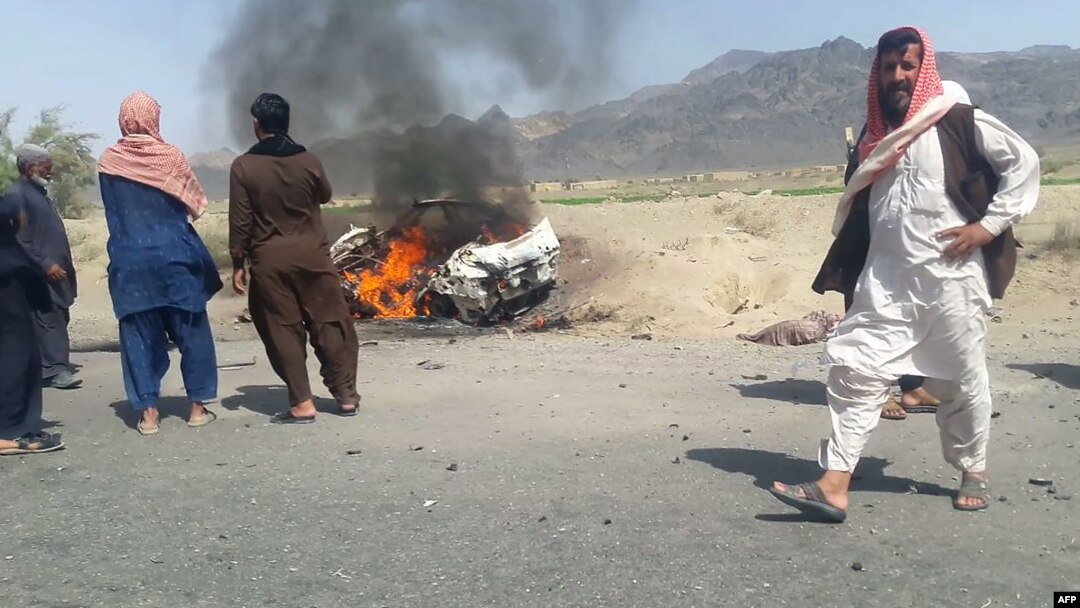Relatives of a Pakistani taxi driver who was killed in last week’s U.S. drone strike targeting the leader of the Afghan Taliban have formally lodged a police complaint against unnamed U.S. officials.
The deceased driver, Mohammad Azam, was transporting Taliban chief Mullah Mansoor when missiles fired by a drone struck their car in Pakistan's southwestern Baluchistan province, killing both of them.
Police in the remote district of Noshki, where the May 21 missile attack took place, confirmed Sunday that Azam’s relatives have set the criminal justice process in motion by filing what is called a First Information Report against unnamed U.S. officials.
“My brother, a father of four children, was innocent and the sole bread earner for his extremely impoverished family,” a brother of the deceased driver said in his complaint.
WATCH: Video from Scene of the Drone Strike
Your browser doesn’t support HTML5
Video from Scene of Drone Strike, May 21, 2016
He said Azam had no links to any terror groups and used to ferry passengers in his taxi between Taftan, the Pakistani town bordering Iran, and Quetta, the capital of Baluchistan.
“I seek justice and legal action against American authorities responsible for the attack. I do not know their names but media has quoted them as claiming to have used explosive material to kill my brother,” the complainant added.
A Quetta-based attorney, Tahir Hussain, told VOA that Azam's family likely will seek a trial in absentia if U.S. officials refuse to respond, and may attempt to push for monetary compensation.
In Islamabad Sunday, Pakistan's Interior Ministry said a DNA sample has confirmed that Mansoor was killed in the drone strike. American and Afghan officials already had confirmed his death, but Pakistan declined to do so until the DNA test result was known.
FILE - Mullah Akhtar Mansoor, leader of the Afghan Taliban, is seen in this undated handout photo from the Taliban.
Officials said a relative of Mansoor provided a DNA sample that matched the Taliban chief's.
U.S. officials defended the drone attack, saying the Taliban leader was opposed to Afghan peace efforts and plotting deadly attacks against American soldiers as well as their partners in Afghanistan.
Mansoor apparently was returning from Iran and was targeted shortly after he entered Pakistan, where he had been residing along with other Taliban leaders.
A Pakistani passport found near the destroyed car carrying Mansoor was traveling in suggested the slain Taliban chief was using a pseudonym, Wali Mohammad, for undertaking journeys within and outside Pakistan. The travel document contained a valid Iranian visa.
A photo shows the Pakistani passport and ID card that Mullah Akhtar Mansoor was allegedly carrying. Mansoor was killed in a U.S. drone strike Saturday near the Pakistan-Afghanistan border.
The U.S. drone operations have long been under fire from rights defenders for causing collateral damage, although Washington insists they have effectively reduced the threat that terrorist groups pose to American interests in the region.
Pakistan condemned the drone attack on Mansoor as a violation of the country's sovereignty. Authorities have since arrested several officials for allegedly helping the slain Taliban leader get a Pakistani passport.


